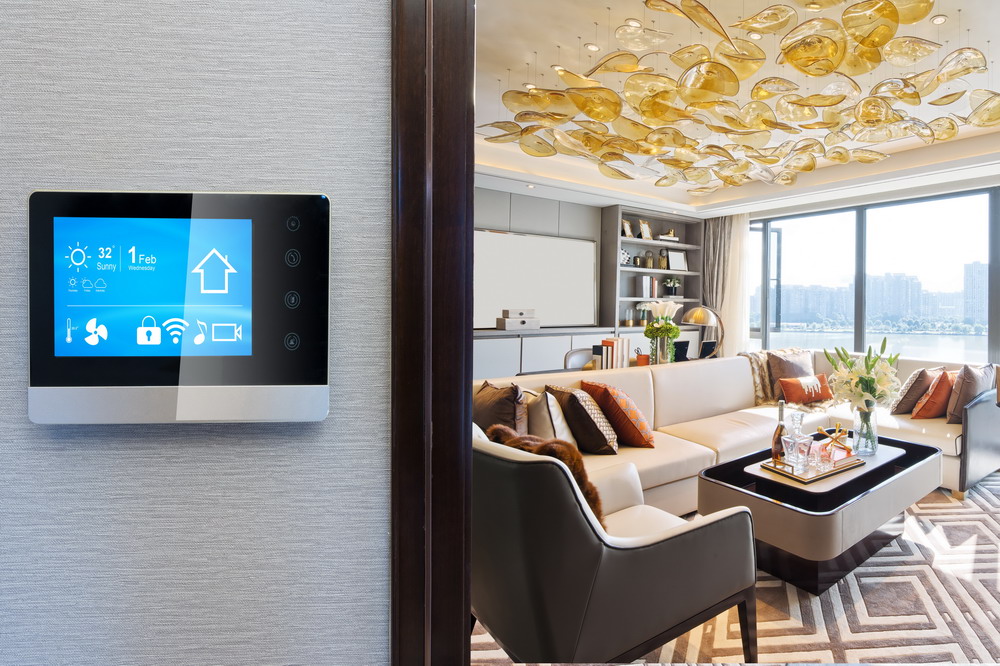How Smart Do You Want Your Home to Be?

Are you considering jumping on the smart home bandwagon? If so, be prepared to face a lot of decisions. Smart home technology has progressed to the extent that there is virtually nothing in your home – running on electricity, at least – that you cannot make smart to some degree. It is really just a matter of how smart you want your home to be.
Vivint Smart Home, a company that specializes in home automation and security, recently published a buying guide that lays out the basics of new smart home installations. Irrespective of whether you use their guide or not, research all your options before you buy. Otherwise you might end up investing in technologies that either do not work well or are not suitable to your needs.
Today’s smart home technology can be divided into three basic categories: security, efficiency, and convenience. Let’s take a look at all three and a bit more detail.
1. Smart Home Security
One could make the case that the impetus behind developing smart home technology was a desire to improve home security. Remember that home security systems have been around in some form for decades. The smart home concept merely took technology that was already developing at a rapid rate and made it better.
A smart home security strategy almost always starts with an electronic hub along with wireless sensors for windows and doors and at least one wireless video camera. A basic system consisting of these components would be enough to get most people started.
The sensors on the windows and doors are pretty basic. They alert the homeowner to intrusion the moment a sensor’s two components are separated by an open door or window. Wireless video cameras are self-explanatory. They provide around-the-clock video surveillance whether a homeowner is home or away.
You can enhance a basic smart home security system by adding:
- more video cameras
- smart lighting
- electronic door locks
- a video doorbell.
What makes all these devices smart is the fact that they can be controlled remotely and, to some extent, programmed to self-adjust based on your lifestyle. Obviously, the best devices tend to cost more. But as with anything else, you get what you pay for in smart home security.
2. Smart Home Efficiency
The second category is efficiency. This is where smart home technology truly shines. For example, consider the smart thermostat. A smart thermostat is not merely programmable, it actually learns your daily routine in order to automatically adjust its own settings. Just program your smart thermostat at initial installation and let it go. After a couple of weeks, it will maximize your heating and cooling system all by itself.
Moving on, the same technology that makes smart thermostats possible can also be applied to lighting. Connecting your lights to a smart hub allows you to program all sorts of lighting scenes based on time of day, seasons, your work schedule, etc. The system will learn your daily routine and adjust lighting scenes automatically.
The nice thing about smart lighting is that you can always override programming at any time. You can also turn lights on and off remotely using your smartphone or tablet. With the right system, you can even do all of this with voice control. Imagine accessing the front porch light as you pull into your neighborhood. Issue a verbal command via your smartphone and the light turns on automatically.
-
3. Smart Home Convenience
Last but not least is the convenience factor. Convenience may be the very thing that turns more people on to smart home technology in the coming years. At any rate, smart home convenience is easily demonstrated in that little device known as the
Your smart speaker sits on a coffee table or counter awaiting your commands. You can ask it to read you the latest news or fetch the weather forecast. You can instruct your smart speaker to turn on living room lights and close the front shades. Speaking is a lot more convenient than doing things manually.
As home automation technology becomes more capable, our homes are destined to get smarter. So, how smart do you want your home to be?








